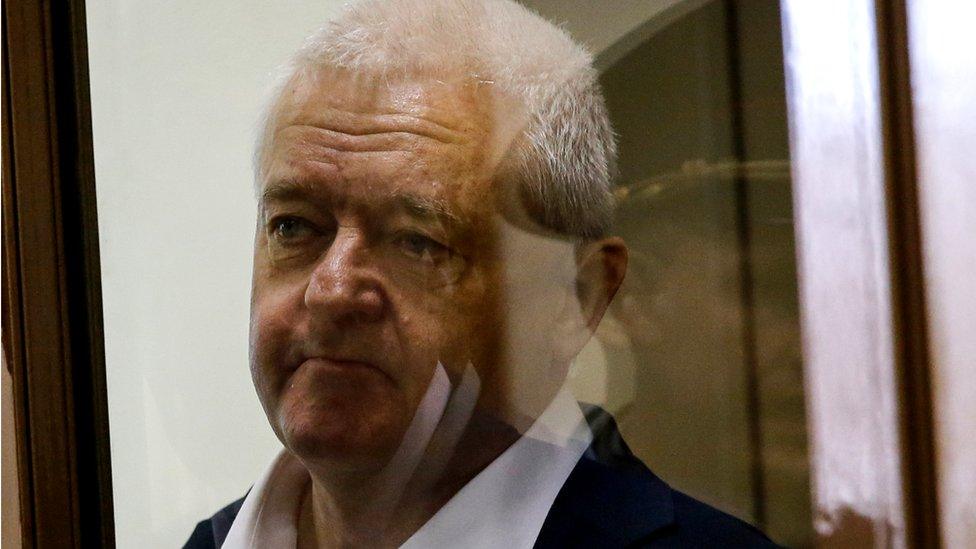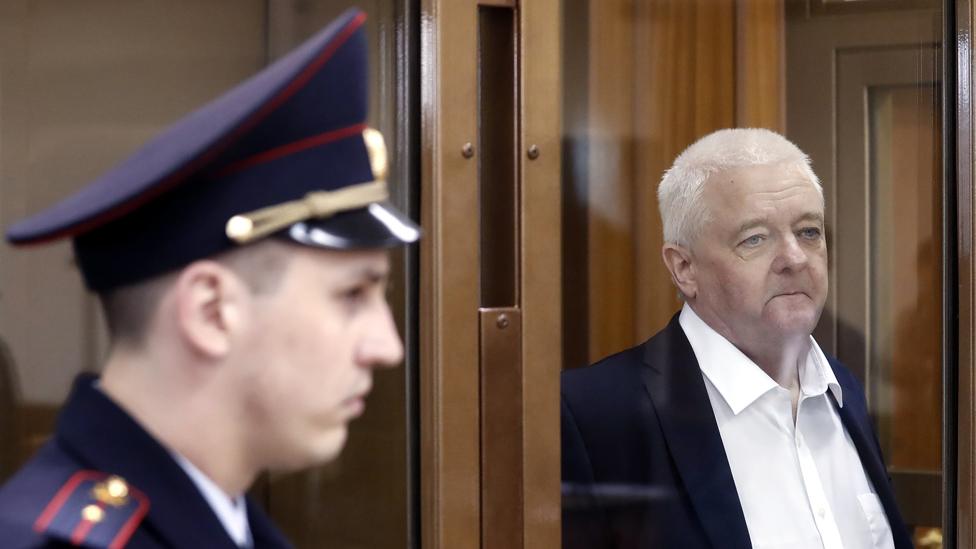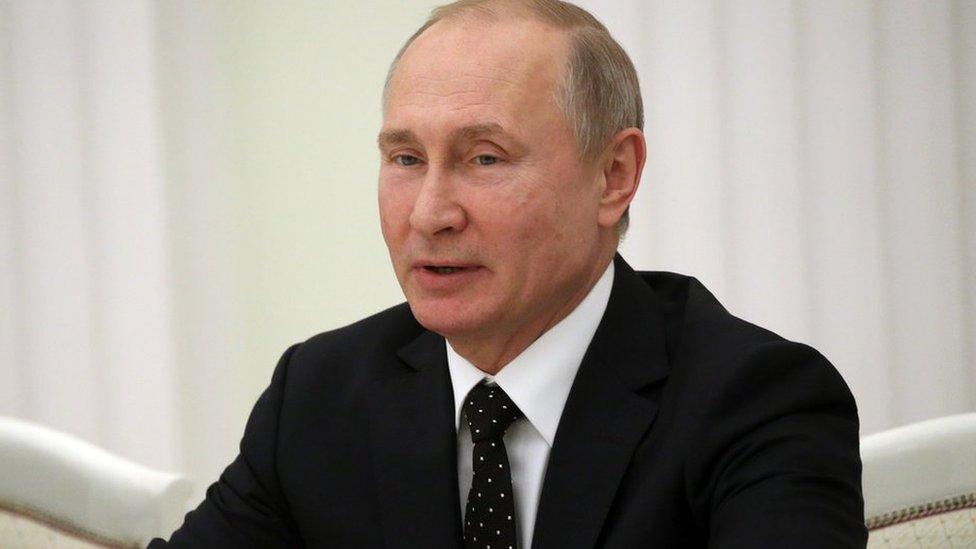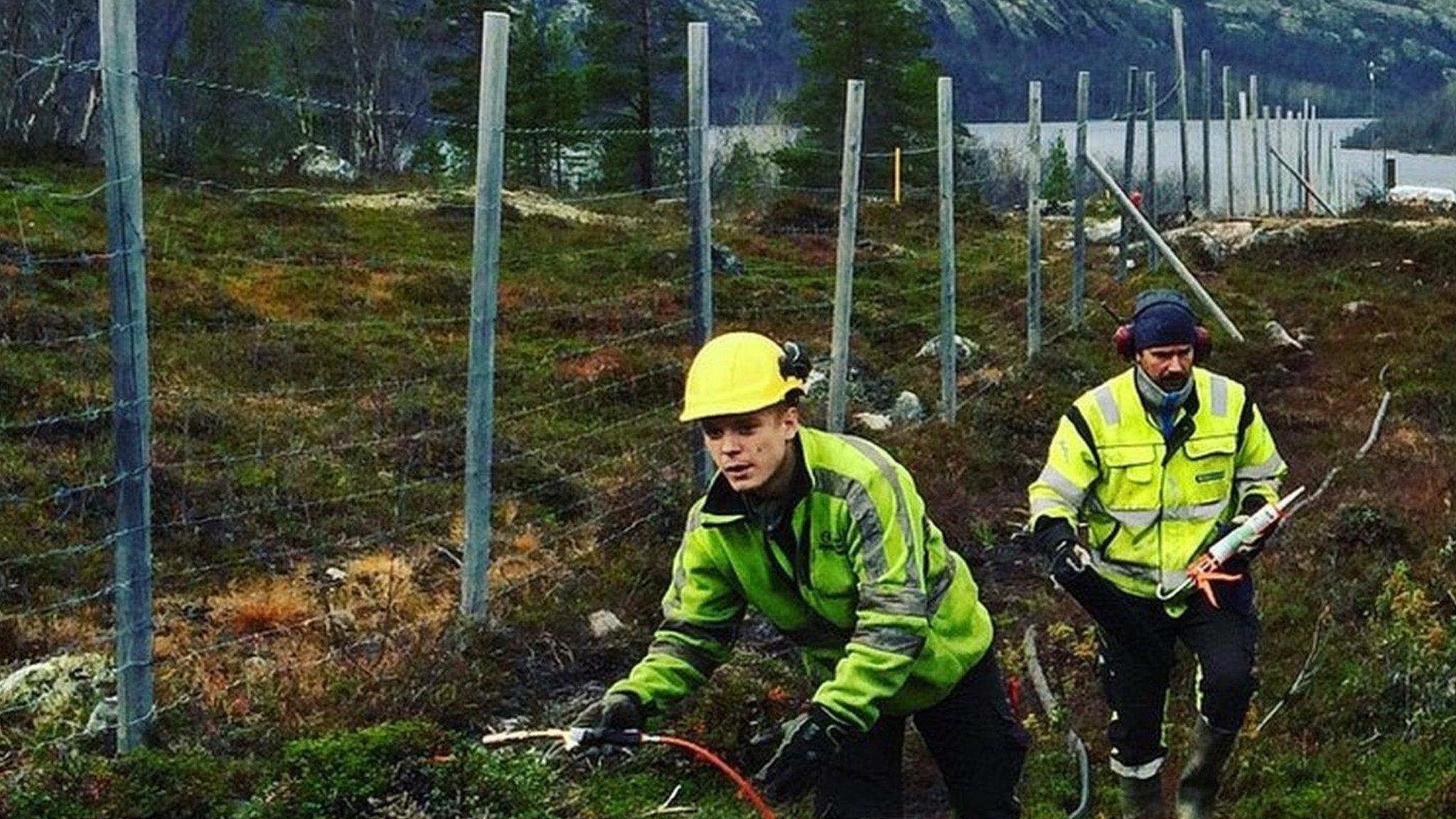Russia spy case: Norwegian Frode Berg 'recommended for pardon'
- Published

Frode Berg, sentenced to 14 years in prison, admitted working with Norwegian intelligence
Norwegian ex-border guard Frode Berg has been recommended for pardon two years after he was jailed for spying on Russian submarines, Interfax news agency reports.
Moscow's official pardons commission said the documents had been passed to President Vladimir Putin on Thursday.
The recommendation to release Berg, 64, comes on the eve of a ceremony marking the Soviet liberation of north Norway.
Reports suggest his release could be part of a three-way spy swap.
Lithuania is said to have been negotiating with Russia to exchange two Russians jailed in Lithuania for Berg and two Lithuanians held in Russia, however there has been no official confirmation of any potential prisoner swap.
The Norwegian lawyer acting for Frode Berg said the timing of the pardons commission's announcement appeared to fit perfectly ahead of Friday's ceremony. "We see this as confirmation of a breakthrough, but there's always uncertainty because of the secrecy surrounding this case," Brynjulf Risnes told the BBC.
No exchange is expected for some weeks because the Lithuanian parliament has to amend extradition legislation early next month.
What did Frode Berg do?
Berg admitted acting as a courier for Norwegian intelligence but said he had little knowledge of any mission.
Norway's Spy Town: 'They took him and they have broken him'
He was arrested in Moscow in December 2017 and later imprisoned on charges of gathering intelligence about nuclear submarines.
His lawyer, Ilya Novikov, said at the time of sentencing that Berg would not appeal against the verdict and would instead seek a pardon from the president.
A formal request was made last week.
On Thursday, Moscow's Commissioner for Human Rights, Tatyana Potyaeva, told Interfax that the pardoning commission had sent the required documentation to the presidential administration office.
Although not all recommendations for pardon are acted upon, this decision comes ahead of a visit on Friday by Russian Foreign Minister Sergei Lavrov to Berg's home town of Kirkenes, on Norway's northern border with Russia.
Norway's King Harald, Prime Minister Erna Solberg and Foreign Minister Ine Eriksen Soreide are all due to attend the event, marking the 75th anniversary of the liberation of Kirkenes and the rest of the East Finnmark area from the Nazis by Soviet troops in 1944.
Was he really spying on Russian subs?
Frode Berg admitted delivering "envelopes" to a Russian source on behalf of Norwegian military intelligence.
He said, however, that he did not know what was inside.
Mr Novikov said in April that his client had "been used without his knowledge," and that "we cannot talk about gathering any secret information".
He added that Berg expected "his government to undertake diplomatic efforts" to secure his release from "basically a life sentence".
The BBC's Sarah Rainsford in Moscow said that Berg was accused of posting envelopes containing cash and instructions from Norwegian intelligence, most recently to a Russian woman named Natasha. But the details remain murky.
In July, Berg's wife told the BBC that she blamed her country's intelligence service for putting her husband - a civilian - at risk, and called on Norway's government to do everything in its power to bring him home.
Norway - a Nato member - shares an Arctic border with Russia and for decades their relations were amicable, even during the Cold War. But ties have worsened since 2014, when Russia annexed Ukraine's Crimea peninsula.
- Published16 April 2019

- Published6 March 2019

- Published7 October 2016
